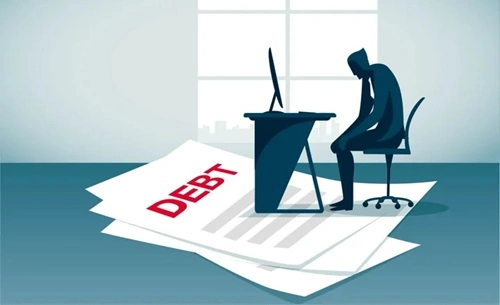Student loan debt is one of the most common financial burdens in America. With over $1.7 trillion in outstanding student loans, millions of borrowers struggle to keep up with payments. Naturally, many wonder: Can you go to jail for not paying student loans?
The short answer is no — you cannot go to jail simply for failing to pay back student loans. However, ignoring your loans completely can lead to serious financial and legal consequences that might indirectly land you in trouble with the court system. Here’s how it really works.

Debtors’ Prisons Are Illegal — But Consequences Still Exist
In the United States, debtors’ prisons were outlawed in the 19th century, and modern law protects people from being jailed for private debt. Federal law specifically prohibits imprisonment for failing to pay civil debts such as credit cards, medical bills, or student loans.
So, if you default on your federal or private student loans, you won’t be arrested or sent to jail simply because you owe money. However, that doesn’t mean you can ignore the debt — the government and lenders have powerful tools to collect what’s owed.
What Really Happens If You Stop Paying
If you stop making student loan payments, your debt goes into default — typically after:
- 270 days of nonpayment for federal student loans, or
- 120 days for most private loans.
Once that happens, several things can occur:
- Wage Garnishment: The federal government can automatically take a portion of your paycheck without a court order.
- Tax Refund and Social Security Seizure: Your tax refunds and even a part of your Social Security benefits can be intercepted.
- Credit Damage: Defaulting can severely lower your credit score, making it harder to rent, borrow, or buy a home.
- Collection Fees: You may owe additional interest and penalties that increase your total debt significantly.
For private student loans, lenders must sue you in civil court to collect. If they win, they can garnish wages or place liens on your property. Still, none of these actions directly involve jail time.
The Exception: Court Orders and Contempt
While you can’t be jailed for not paying student loans, you can face jail if you ignore court orders related to them.
Here’s how it can happen:
- A private lender sues you for unpaid loans.
- The court issues a judgment requiring you to appear at a hearing or provide financial documents.
- You fail to appear or ignore the court order.
In that case, the judge can issue a bench warrant for your arrest, not for failing to pay the loan, but for contempt of court. This is rare, but it has happened in some states where borrowers ignored repeated court summons.
So, technically, you’re not jailed for student loan debt itself — you’re jailed for disobeying a court order connected to it.
Federal vs. Private Student Loans
The distinction between federal and private loans is crucial:
- Federal Student Loans: Collected by the Department of Education through programs like wage garnishment or Treasury offsets. Jail is never part of this process.
- Private Student Loans: Collected through lawsuits filed by private lenders. If you cooperate with the court process, you won’t face arrest. But ignoring the case entirely can lead to legal consequences.
Either way, both types of debt can haunt you financially for years since student loans are rarely dischargeable in bankruptcy without proving extreme hardship.
How to Avoid Default and Legal Trouble
If you’re struggling to make payments, don’t wait until your loans go into default. There are legitimate ways to avoid severe consequences:
- Income-Driven Repayment (IDR) Plans: For federal loans, payments can be reduced based on your income, sometimes as low as $0 per month.
- Deferment or Forbearance: You can temporarily pause payments for financial hardship, unemployment, or medical reasons.
- Loan Consolidation or Refinancing: These options can simplify payments or lower your interest rate.
- Communication: Always respond to lenders and court notices. Silence is what can escalate things into legal trouble.
Final Thoughts
So, can you go to jail for not paying student loans? No, not for the debt itself. The U.S. does not imprison people for failing to pay their educational debts. However, ignoring your obligations or court orders can create legal complications that might put you at risk.
The key takeaway is simple: communicate, cooperate, and seek help early. There are repayment and forgiveness options available, especially for federal loans. Failing to pay might hurt your credit or finances, but it should never land you behind bars — unless you let a small legal issue turn into a bigger one through neglect.

Our dedicated team gathers information from all the reliable sources to make the law accessible and understandable for everyone. We provide the latest legal news stories from across the country, delivered straight to you.
